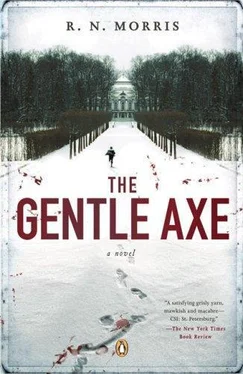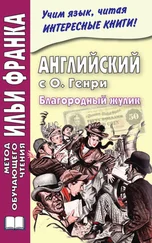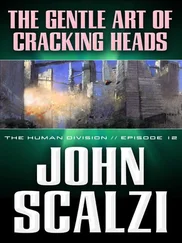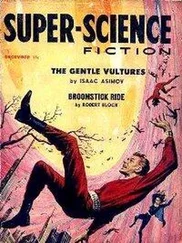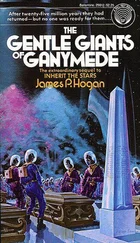R. Morris - The Gentle Axe
Здесь есть возможность читать онлайн «R. Morris - The Gentle Axe» весь текст электронной книги совершенно бесплатно (целиком полную версию без сокращений). В некоторых случаях можно слушать аудио, скачать через торрент в формате fb2 и присутствует краткое содержание. Год выпуска: 2008, ISBN: 2008, Издательство: Penguin Books, Жанр: Исторический детектив, на английском языке. Описание произведения, (предисловие) а так же отзывы посетителей доступны на портале библиотеки ЛибКат.
- Название:The Gentle Axe
- Автор:
- Издательство:Penguin Books
- Жанр:
- Год:2008
- ISBN:9780143113263
- Рейтинг книги:5 / 5. Голосов: 1
-
Избранное:Добавить в избранное
- Отзывы:
-
Ваша оценка:
- 100
- 1
- 2
- 3
- 4
- 5
The Gentle Axe: краткое содержание, описание и аннотация
Предлагаем к чтению аннотацию, описание, краткое содержание или предисловие (зависит от того, что написал сам автор книги «The Gentle Axe»). Если вы не нашли необходимую информацию о книге — напишите в комментариях, мы постараемся отыскать её.
The Gentle Axe — читать онлайн бесплатно полную книгу (весь текст) целиком
Ниже представлен текст книги, разбитый по страницам. Система сохранения места последней прочитанной страницы, позволяет с удобством читать онлайн бесплатно книгу «The Gentle Axe», без необходимости каждый раз заново искать на чём Вы остановились. Поставьте закладку, и сможете в любой момент перейти на страницу, на которой закончили чтение.
Интервал:
Закладка:
Salytov got details of the accident from a witness whom the polizyeisky had detained, a cavalry officer who happened to be on the bridge at the time. His rank and bearing lent authority to his account, and there was an immediate understanding between the two men. He spoke clearly and unhurriedly, neither agitated nor bored. He had seen worse, was the impression he gave, but he recognized the necessity of due process and was respectful of that, if not of the dead. It seemed he felt more pity for the horses than for the trampled man.
Porfiry paid only scant attention to the officer and found himself looking at the obscure figure in the closed carriage. Finally he walked over. The black and highly polished lacquer of the coach’s bodywork shone impenetrably. It reflected back the tragedy of the day, without allowing it to touch the passenger within. Porfiry looked through the window. A girl of about nineteen or twenty stared back at him. The spreading bulk of her furs set off the fine, haughty beauty of her face. Her expression communicated outrage at Porfiry’s presumed insolence.
For an instant he wanted to drag her out of the carriage and manhandle her over to where he knew the dead man lay. Instead he simply bowed his head and looked down at the family crest laid in gold leaf on the carriage door.
He turned away and, at last, surmounted the crest of the bridge. With sudden decisiveness, as if to emphasize the independence of his actions, he looked down.
Inevitably, his gaze went first to the head, which had exploded like a trampled fruit. The snow around the sprawl of flesh, bone, hair, and brains was a dirty pink slush. Madly, Porfiry stared at the mangled center of this dark vortex, as if he really believed he would be able to recognize Virginsky’s features there. And when he could not, he cast about desperately over the rest of the body. All the limbs had a rag-bag casualness to them, as if they had been arranged by someone in a hurry, or with only a partial understanding of how the human body fitted together. Even the shape of the dark overcoat failed to impose any form or coherence.
At the bottom of the coat, two brown, worn boots, cracked uppers and gaping soles advertising their antiquity, projected at impossible angles.
Porfiry’s heart began to pound. But then he felt a guilty sickness at his own jubilant excitement. Here was a man driven to death by poverty and despair, or possibly in an alcoholic stupor, which amounted to the same thing. He deserved better than Porfiry’s selfish relief.
Suddenly, from a clear sky, it began to snow.
Porfiry turned his back on the dead man and broke into a brisk walk away from the bridge. This time it was Salytov who had to hurry to keep up.
Wild Surmises
The brightly painted facades of the wine cellars and delicatessens on the Nevsky Prospect beckoned cheerily. Porfiry felt a fleeting, childish wonder at the oversize representations of grapes, charcuterie, and caviar. All he wanted to do was go inside one of those shops and never come out.
Instead he went into the three-story office building on the corner of the Nevsky Prospect and Bolshaya Konyushennaya Street, across from the Lutheran church.
He declined the wiry commissionaire’s offer to escort him to the office of Athene Publishing.
He didn’t wait for his single, sharp knuckle rap to be answered but went straight in, signaling to Salytov to wait outside. Osip Maximovich Simonov, seated at his desk, looked up over his spectacles. Their lenses shone, veiling his eyes with a film of silver. There was not a speck on his black frock coat. His beard had a sculptural perfection to it, and his long hair presented a helmetlike solidity. His neatness went deep.
“May I sit down?” Porfiry bowed from the waist as he made the request.
The other man nodded guardedly.
Porfiry took a seat on the other side of the desk and fixed Osip Maximovich steadily. “I’d like to get to know you better, Osip Maximovich. I feel we have a lot in common.”
“You do?”
“Yes. I was educated at a seminary as well, you know.”
“Indeed? I didn’t know.”
“Couldn’t you tell?”
“I hadn’t really thought about it.”
“I will never forget the monks who taught me.”
“Of course.”
“I sometimes wonder if they would remember me.”
Osip Maximovich seemed to shrug.
“I like to think they would,” continued Porfiry.
“I’m sure you were a memorable youth.”
“Yes, but I’m a man now, am I not? The thing is, would they think of the child now when they saw the man?”
“Possibly. Possibly not. Porfiry Petrovich, I hate to-”
“I will never forget what they taught me too.”
“Then your education wasn’t wasted.”
“I was thinking more of my moral education.”
“I too.” Osip Maximovich’s smile revealed his straining patience.
“Do you believe in the soul, Osip Maximovich?”
“You already know that I am a believer.”
“Then I am afraid for you.”
“Please don’t be.”
“My friend Pavel Pavlovich Virginsky claims he doesn’t believe in the soul.”
“I’m surprised to hear you describe such a fellow as your friend.”
“Why do you say that?”
“Oh, I know all about Pavel Pavlovich Virginsky,” said Osip Maximovich quickly. “I know all about his addiction to laudanum. And his habit of stealing other people’s possessions to pawn them. I also know about that blasphemous contract he drew up with Goryanchikov.”
“You do?”
“Yes, Goryanchikov showed it to me.”
“An interesting document, wouldn’t you say?”
“Such a man is capable of anything.”
“Why?”
“Because he has no soul. He has surrendered it to another.”
“But if you don’t believe in the soul-as Virginsky did not-it follows that you don’t believe in the contract,” said Porfiry. “Such a document is meaningless. In fact, it only makes sense if you are a believer.”
“I suppose you’re right.”
“How is Anna Alexandrovna?” asked Porfiry abruptly.
“She’s very well.” Osip Maximovich took off his spectacles. A small twinge of a smile quivered on his lips. “We are to be married, you know. Our engagement will be announced on New Year’s Eve.”
“Ah,” said Porfiry. “Now I know you did it. I know you did it all. You killed all of them. Starting with Goryanchikov. Then Borya. Then Govorov. Then Lilya, Vera, and Zoya. You killed them all, Osip Maximovich. I only needed your motive, and now you have given it to me.”
Osip Maximovich didn’t seem surprised. He didn’t even attempt to feign surprise. He simply said, “Nonsense,” then put his spectacles back on. “But tell me, how have you worked all this out?” There was mockery in his tone.
“Let’s start with Borya.”
“Why start with him?”
“Because he was where my suspicions started. Borya didn’t hang himself. Someone else did that for him. There was oil on the collar of his greatcoat. How did the oil get there? It was when I came to see you here that it came to me. I noticed the shop selling mechanical devices on the ground floor of this building. Of course! He must have been hoisted up by a block and tackle. You tied a length of rope around the bough of the tree, high up, with a loop hanging off it. Through the loop you threaded the rope that was tied around Borya’s midriff, which was attached at the other end to the block and tackle, itself secured to one of the other trees. At this point he was still alive, just, though he was rapidly dying from the poisoned vodka you had given him. We know he was alive because of the bruising we found around the middle of his body. You probably already had a halter loosely in place around his neck. When he was high enough, you tied this rope around the bough. You then untied the rope around Borya’s middle and used Borya’s axe to cut down the rope with the loop. It left the nick in the bark, which I admit puzzled us for some time. Now Borya was hanging by his neck, but he was already dead. The blood had ceased to circulate. That’s why there was no bruising around his throat.”
Читать дальшеИнтервал:
Закладка:
Похожие книги на «The Gentle Axe»
Представляем Вашему вниманию похожие книги на «The Gentle Axe» списком для выбора. Мы отобрали схожую по названию и смыслу литературу в надежде предоставить читателям больше вариантов отыскать новые, интересные, ещё непрочитанные произведения.
Обсуждение, отзывы о книге «The Gentle Axe» и просто собственные мнения читателей. Оставьте ваши комментарии, напишите, что Вы думаете о произведении, его смысле или главных героях. Укажите что конкретно понравилось, а что нет, и почему Вы так считаете.
